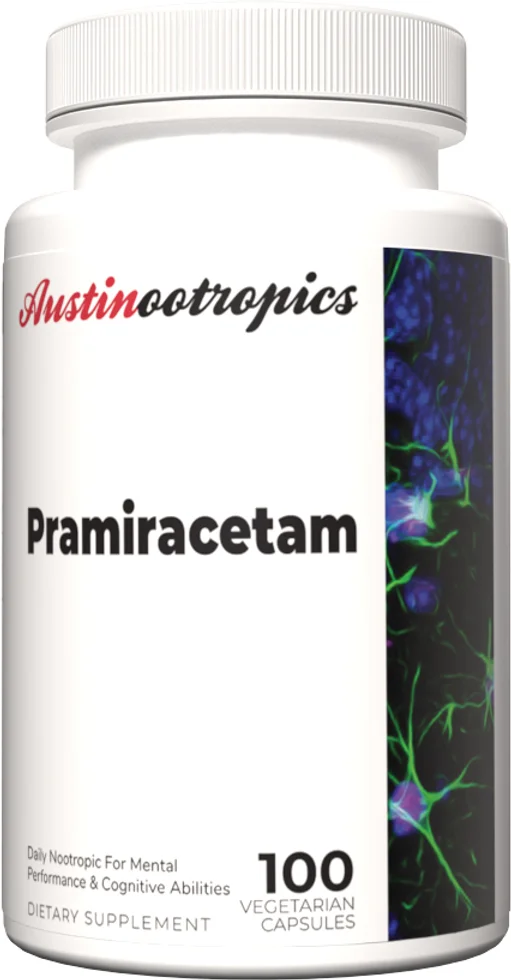In the ever-evolving world of cognitive enhancement, Austinootropics stands out as a unique concept that reflects the desire to optimize mental performance. Rooted in the broader category of nootropics—substances known for their ability to boost brain function—Austinootropics integrates various disciplines, from neuroscience to holistic health, to provide a tailored approach to mental acuity. This article delves into the world of austinootropics, exploring its key principles, benefits, mechanisms of action, and potential implications for both daily life and overall brain health.
What Are Nootropics?
Before delving into Austinootropics, it’s essential to understand the general category of nootropics. Nootropics, sometimes referred to as smart pharmaceuticals or cognitive enhancers, are drugs that help healthy people’s cognitive abilities, especially with regard to motivation, creativity, memory, and executive functions. The term “nootropic” was coined by Romanian psychologist and chemist Dr. Corneliu Giurgea in 1972, based on his development of Pramiracetam, one of the first recognized nootropic substances.
The nootropic landscape includes:
Austinootropics represents a modern, holistic take on cognitive enhancement. It emphasizes personalized brain health strategies and incorporates not only pharmacological agents but also lifestyle changes, nutrition, and mindfulness practices. Austinootropics centers around optimizing brain function in a way that’s sustainable, ethical, and health-conscious.
The core philosophy behind Austinootropics is that brain enhancement should be a multifaceted approach, combining modern science with ancient wisdom. It is not about merely popping pills for short-term gains but rather nurturing the brain in a way that promotes long-term mental health, resilience, and well-being.
Key Principles of Austinootropics:
- Personalization: Austinootropics emphasizes that no two brains are the same, and as such, cognitive enhancement should be highly individualized. This means considering genetic factors, lifestyle, and even environmental stressors when selecting nootropic supplements or routines.
- Sustainability: Rather than relying on powerful stimulants that may lead to burnout or dependence, Austinootropics promotes the use of nootropics that work gently with the brain’s natural chemistry. These include substances that support neurogenesis, improve synaptic plasticity, and protect against neurodegeneration.
- Holistic Approach: Austinootropics integrates not just supplements but also diet, exercise, sleep optimization, and stress management. This approach recognizes that cognitive function is not just the result of pharmacological intervention but also deeply intertwined with overall health and wellness.
- Mindfulness and Neuroplasticity: The concept places a significant focus on the brain’s ability to rewire itself, known as neuroplasticity. It encourages practices like meditation, journaling, and mindfulness techniques that complement the chemical benefits of nootropics, creating a more balanced approach to cognitive improvement.
- Ethics and Safety: Austinootropics prioritizes the ethical use of cognitive enhancers, advocating for research-backed, safe, and non-addictive compounds. It steers away from high-risk stimulants or drugs that might compromise mental health or well-being.
Mechanisms of Action:
Nootropics and Austinootropics work through various mechanisms to enhance brain function. Below are some of the main pathways through which these cognitive enhancers operate:
- Neurotransmitter Modulation: Many nootropics increase the levels of key neurotransmitters like acetylcholine, dopamine, and serotonin. For example, racetams, a popular class of nootropics, enhance the release and efficacy of acetylcholine, which plays a critical role in memory and learning.
- Increased Cerebral Blood Flow: Some nootropics, such as Vinpocetine, are known to increase cerebral blood flow, providing the brain with more oxygen and nutrients. This improved blood flow can lead to heightened alertness, mental clarity, and focus.
- Neuroprotection: Austinootropic substances also work to protect the brain from oxidative stress and damage caused by free radicals. Antioxidants like Alpha Lipoic Acid and herbal compounds such as Ginkgo Biloba help to preserve brain health and prevent neurodegenerative diseases.
- Stimulation of Neurogenesis: One of the most exciting areas in cognitive enhancement is the stimulation of neurogenesis—the formation of new neurons in the brain. Some nootropics, such as Lion’s Mane Mushroom and Noopept, have been shown to promote neurogenesis, improving long-term memory and overall cognitive function.
- Regulation of Stress Hormones: Chronic stress and high levels of cortisol can have detrimental effects on the brain, leading to impaired memory and focus. Adaptogens like Ashwagandha and Rhodiola Rosea are included in the Austinootropics regimen for their ability to regulate stress hormones and improve resilience to physical and mental stress.
The Role of Lifestyle in Austinootropics:
One of the defining aspects of Austinootropics is its integration with lifestyle factors. Cognitive enhancement is not viewed in isolation but as part of an overall strategy for brain health. Here are some key lifestyle components that are often recommended in the Austinootropics framework:
1. Nutrition and Diet:
Brain-healthy diets, such as the Mediterranean diet or ketogenic diet, are often part of the Austinootropics approach. These diets focus on foods that support cognitive function, such as omega-3-rich fish, leafy green vegetables, berries, nuts, and seeds. Avoiding processed sugars, trans fats, and excessive alcohol is also key to maintaining optimal brain function.
Additionally, certain nootropic foods are known to enhance brain health. For example, dark chocolate contains flavonoids that improve blood flow to the brain, while turmeric contains curcumin, a compound known to support neurogenesis and reduce inflammation in the brain.
2. Sleep and Rest:
The role of sleep in cognitive function cannot be overstated. Austinootropics emphasizes proper sleep hygiene, recommending at least 7-8 hours of quality sleep per night. This helps the brain consolidate memories and perform necessary repair functions. Some nootropics, such as L-theanine, can help improve sleep quality by promoting relaxation and reducing anxiety.
3. Physical Exercise:
Physical exercise is another cornerstone of the Austinootropics approach. Regular cardiovascular exercise has been shown to increase neurogenesis, improve blood flow, and enhance mood-regulating neurotransmitters like serotonin and dopamine. Austinootropics encourages a blend of aerobic exercises (like running or cycling) and strength training to support overall brain health.

